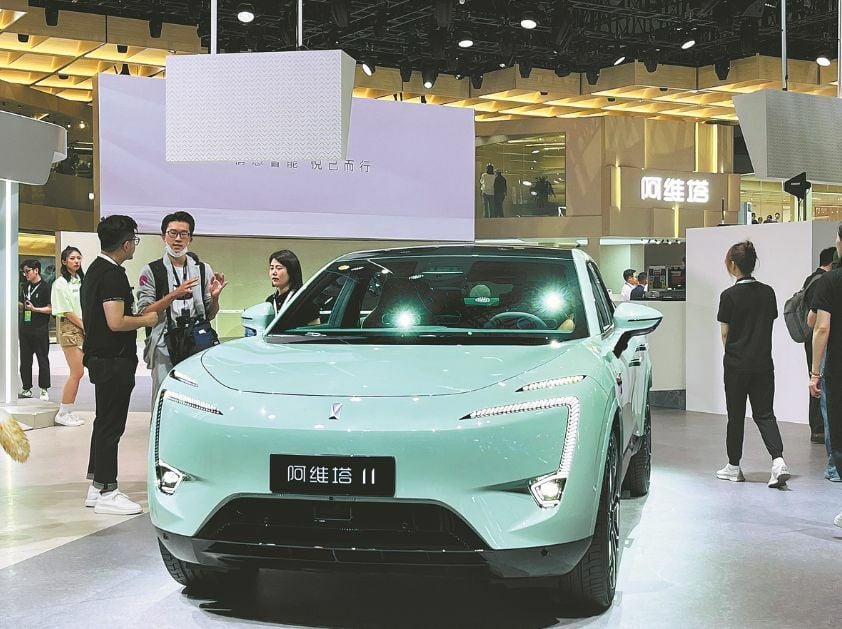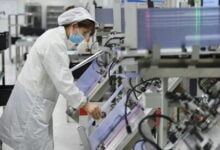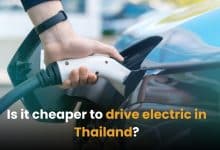Shock to the system: Chinese EV makers’ global charge struggle

Chinese electric vehicle (EV) makers face a challenge in maintaining their global image as price competition abroad raises concerns about the quality and reliability of their cars, according to consultancy Bain & Co.
Bain & Co advises Chinese EV manufacturers, who already have a cost advantage over international competitors, to shift their focus to premium and expensive models rather than targeting budget-conscious consumers with frequent discounts, stated a partner of Bain & Co, Helen Liu, during a media briefing.
“Chinese companies have the potential to redefine electric cars so that they can convince global customers of their products’ competitiveness in performance and technology,
“The pricing advantage will eventually run out of steam. It is product quality, technology, and brand awareness that hold the key to Chinese carmakers’ success.”
This statement aligns with the European Union’s recent decision to impose additional tariffs of up to 38% on Chinese-made EVs following a nine-month anti-subsidy investigation.
Bain’s latest report on Chinese companies’ globalisation drive and overseas investment strategy suggests that EV manufacturers should consider establishing production facilities in the regions where they aim to capture market share to avoid the impact of punitive tariffs on their cars.
Production concerns
The report also cautions that localising production introduces risks associated with geopolitical tensions and regulatory compliance.
China, the world’s largest automotive and EV market, accounts for 60% of global electric car sales.
In September, UBS projected that Chinese-made cars, benefiting from a faster pace of electrification, would control a third of the global market by 2030, up from 17% in 2022.
A comprehensive report revealed that the production cost of the pure-electric Seal sedan by Shenzhen-based BYD, the world’s largest EV maker, was 15% lower than that of Tesla’s Model 3 assembled in China. In Europe, the Seal maintained a sustainable 25% cost advantage over rivals, even considering growing trade barriers like tariffs.
BYD (Build Your Dreams), supported by Warren Buffett’s Berkshire Hathaway, primarily produces cheaper pure-electric cars and plug-in hybrid vehicles, priced between 100,000 and 200,000 yuan (500,000 to 1 million baht).
The company’s blade battery packs are popular with consumers and other EV manufacturers due to their efficient energy density and resistance to overheating.
Technological advancements
Leading Chinese premium EV manufacturers, including Nio, Xpeng, and Li Auto, produce vehicles with advanced features such as autonomous driving technology and voice-activated control systems.
A price war among Chinese EV manufacturers has spread to overseas markets as over a dozen players look abroad to boost sales and offset domestic losses.
In Thailand, established carmakers like BYD and Great Wall Motor, along with EV start-ups such as Hozon New Energy Automobile, are offering discounts to compete with Japanese rivals whose petrol vehicles dominate the market.
Last month, a report revealed that BYD held a 33% share of the EV market in the Association of Southeast Asian Nations (ASEAN) countries, followed by Neta-branded electric cars with 14% of the regional total.
Liu emphasised that Chinese electric-car makers should focus on long-term brand building when expanding abroad, rather than pursuing short-term sales gains.
“They are advised to compete in the premium segment and attract wealthy customers… offering discounts to woo price-sensitive buyers is not sustainable.”
The consultancy’s advice comes as Chinese EV manufacturers navigate the complexities of global markets and aim to establish themselves as leaders in quality and technology, reported Bangkok Post.
Latest Thailand News
Follow The Thaiger on Google News:


























